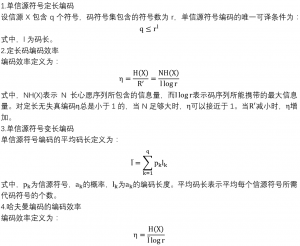1
2
3
4
5
6
7
8
9
10
11
12
13
14
15
16
17
18
19
20
21
22
23
24
25
26
27
28
29
30
31
32
33
34
35
36
37
38
39
40
41
42
43
44
45
46
47
48
49
50
51
52
53
54
55
56
57
58
59
60
61
62
63
64
65
66
67
68
69
70
71
72
73
74
75
76
77
78
79
80
81
82
83
84
85
86
87
88
89
90
91
92
93
94
95
96
97
98
99
100
101
102
103
104
105
106
107
108
109
110
111
112
113
114
115
116
117
118
119
120
121
122
123
124
125
126
127
128
129
130
131
132
133
134
135
136
137
138
139
140
141
142
143
144
145
146
147
148
149
150
151
152
153
154
155
156
157
158
159
160
161
162
163
|
import random
import math
max_range=1000
dice_arr=[]
for i in range(0,max_range):
tempdice1=random.randint(1,6)
tempdice2=random.randint(1,6)
tempdicetotal=tempdice1+tempdice2
dice_arr.append(tempdicetotal)
print "dicrArray is ",dice_arr
fixedEncoding_arr={2:"0000",3:"0001",4:"0010",5:"0011",6:"0100",7:"0101",8:"0110",9:"0111",10:"1000",11:"1001",12:"1010"}
fixedArray=[]
for i in range(len(dice_arr)):
fixedArray.append(fixedEncoding_arr[dice_arr[i]])
print "fixedArray is ",fixedArray
fixedCode="".join(fixedArray)
print "fixedCode is ",fixedCode
freqs_arr={2:0,3:0,4:0,5:0,6:0,7:0,8:0,9:0,10:0,11:0,12:0}
for i in range(len(dice_arr)):
freqs_arr[dice_arr[i]]+=1
print "fixed code freqsArray is ",freqs_arr
prob_arr=[]
for i in freqs_arr:
prob_arr.append(float(freqs_arr[i])/float(max_range))
print "code probability arr is ",prob_arr
informationEntropy=0.0
for i in range(len(prob_arr)):
if prob_arr[i]!=0:
informationEntropy=informationEntropy-prob_arr[i]*math.log(prob_arr[i],2)
print "information entropy is ",informationEntropy
print "fixed Code Table:"
for i in freqs_arr:
print "Number:%s freq:%-2d encoding: %s"%(i,freqs_arr[i],fixedEncoding_arr[i])
fixedEffic=(max_range*informationEntropy)/(4*max_range*math.log(2,2))
print "fixed code efficiency is ",fixedEffic
lPos=0
rPos=4
fixedDecode=[]
for i in range(max_range):
tempCode=fixedCode[lPos:rPos]
for j in fixedEncoding_arr:
if fixedEncoding_arr[j]==tempCode:
fixedDecode.append(j)
lPos=lPos+4
rPos=rPos+4
print "the decode of fixed code is ",fixedDecode
class Node:
def __init__(self,freq):
self.left=None
self.right=None
self.father=None
self.freq=freq
def isLeft(self):
return self.father.left==self
def createNodes(freqs):
return [Node(freq) for freq in freqs]
def createHuffmanTree(nodes):
queue=nodes[:]
while len(queue)>1:
queue.sort(key=lambda item:item.freq)
node_left=queue.pop(0)
node_right=queue.pop(0)
node_father=Node(node_left.freq+node_right.freq)
node_father.left=node_left
node_father.right=node_right
node_left.father=node_father
node_right.father=node_father
queue.append(node_father)
queue[0].father=None
return queue[0]
def huffmanEncoding(nodes,root):
codes=['']*len(nodes)
for i in range(len(nodes)):
node_tmp=nodes[i]
while node_tmp!=root:
if node_tmp.isLeft():
codes[i]='0'+codes[i]
else:
codes[i]='1'+codes[i]
node_tmp=node_tmp.father
return codes
nodes=createNodes(freqs_arr[i] for i in freqs_arr)
root=createHuffmanTree(nodes)
HuffmanCodes=huffmanEncoding(nodes,root)
print "HuffmanCodeArray is ",HuffmanCodes
temp_range=0
print "Huffman Code Table:"
for i in freqs_arr:
print "Number:%s freq:%-2d encoding: %s"%(i,freqs_arr[i],HuffmanCodes[temp_range])
temp_range=temp_range+1
HuffmanArray=[]
for i in range(len(dice_arr)):
HuffmanArray.append(HuffmanCodes[dice_arr[i]-2])
print "HuffmanArray is ",HuffmanArray
HuffmanCode="".join(HuffmanArray)
print "HuffmanCode is ",HuffmanCode
HuffmanAveLen=0
for i in range(len(prob_arr)):
HuffmanAveLen=HuffmanAveLen+prob_arr[i]*len(HuffmanCodes[i])
print "Huffman average length is ",HuffmanAveLen
HuffmanEffic=informationEntropy/(HuffmanAveLen*math.log(2,2))
print "Huffman code efficiency is ",HuffmanEffic
lPos=0
rPos=0
HuffmanDecode=[]
while(len(HuffmanDecode)<max_range):
tempCode=HuffmanCode[lPos:rPos]
haveHuffman=0
while(haveHuffman==0):
rPos=rPos+1
for j in range(len(HuffmanCodes)):
if HuffmanCodes[j]==tempCode:
HuffmanDecode.append(j+2)
haveHuffman=1
tempCode=HuffmanCode[lPos:rPos]
lPos=rPos-1
rPos=lPos+1
print "the decode of Huffman code is ",HuffmanDecode
raw_input("press any key to quit")
|
